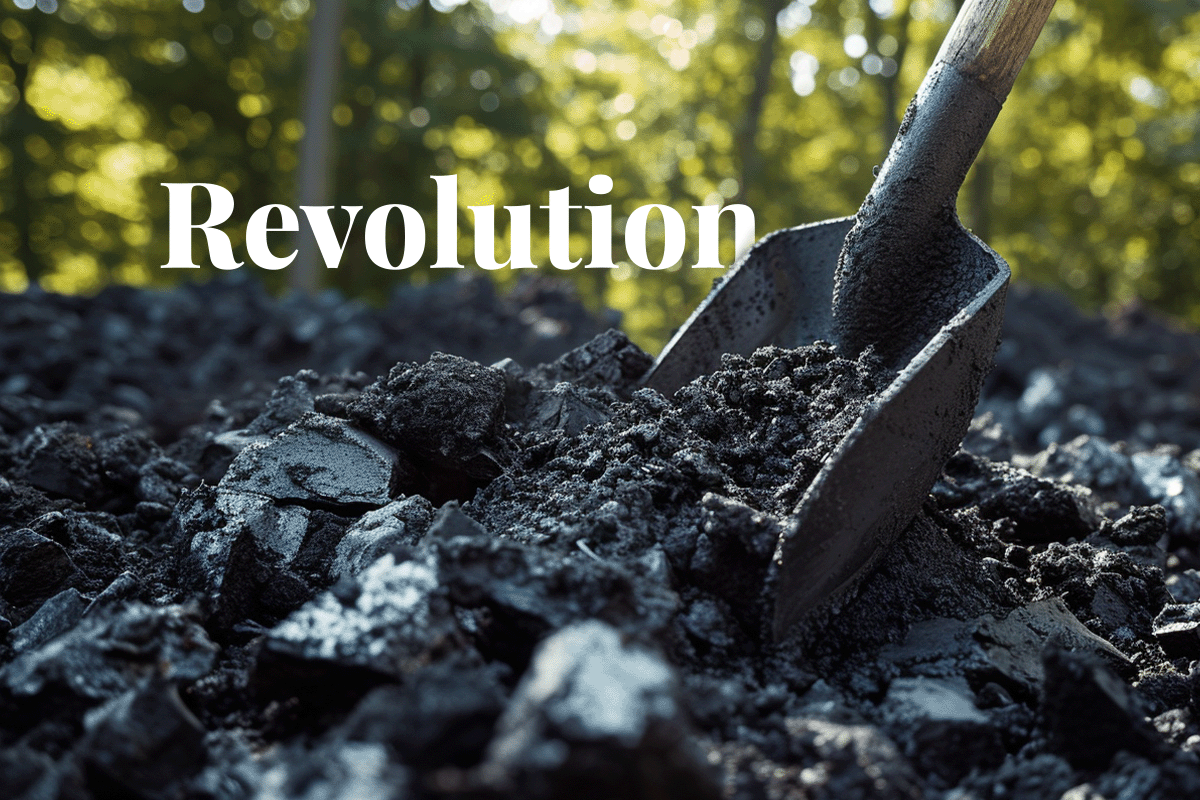In the heart of Greenville's former biomass plant in the United States, a transformative process unfolds as wood chips are converted into biochar through pyrolysis. This carbon-rich substance has become a focal point for Maine entrepreneurs, spearheaded by Clean Maine Carbon which envisions a greener future through innovative carbon sequestration methods.
 A close up on a pile of biochar.
A close up on a pile of biochar.
Biochar, emerging from high-temperature, low-oxygen pyrolysis conditions, boasts a unique ability to bind carbon for extended periods. The charcoal-like material is strategically positioned as a viable solution to reduce carbon emissions while contributing to agricultural soil improvement.
This innovative approach allows businesses to actively participate in offsetting their carbon footprints without overhauling existing operations. The stability of biochar ensures a prolonged carbon-binding effect, making it an appealing choice for environmentally conscious companies. The produced biochar also results in carbon credits, useful for companies in offsetting their unavoidable emissions.
Read more: Introducing biochar: a new innovative carbon storage solution
Amidst debates surrounding environmental solutions, biochar emerges as a versatile element in the arsenal. Research conducted at the University of Maine adds depth to biochar's potential applications. Associate Professor YongJiang Zhang highlights its physical structure, likening it to a sponge that can retain water during heavy precipitation and release it gradually. This attribute proves beneficial, especially when applied to sandy soils, enhancing water and nutrient use efficiency for crops like blueberries.
Ongoing studies delve into the broader applications of biochar, exploring its positive impact on potato crops and its ability to immobilise PFAS particles (Per- and Polyfluorinated Substances) in contaminated fields. The scientific community's interest in biochar extends beyond carbon sequestration, envisioning its role as a multifaceted solution for sustainable agriculture and environmental remediation.
Read more: Biochar market analysis: pricing insights and global trends
The company in Maine, with aspirations to scale up production, aims for an annual output of 1,200 tonnes of biochar. Meanwhile, Standard Biocarbon in Enfield stands poised to join the green initiative, gearing up for production in the coming months with a similar annual target. These ventures mark significant strides towards a sustainable future, where biochar takes centre stage in reshaping the landscape of carbon management.
At DGB Group, we are committed to nature-centric resolutions, rejuvenating the ecosystem with reforestation, agroforestry, and biodiversity restoration. Our approach facilitates open collaboration for businesses and individuals, fostering a seamless partnership with all stakeholders involved. Integrating biochar into land management strategies holds transformative potential for sustainability, charting a course towards an improved tomorrow. Embracing the capabilities of biochar allows us to bolster nature, prevent biodiversity decline, and nurture a robust world for the prosperity of future generations.
Take action for nature with DGB's carbon credits

